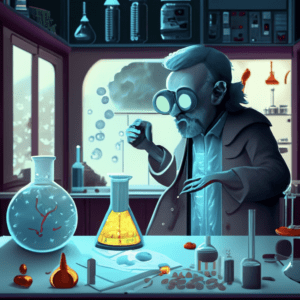The Possibilities are Endless
For many, a career in science starts and ends in the lab. However, the applicability of scientific skills and knowledge extends far beyond traditional research roles. From diverse fields like law and policy to writing and business, science graduates have a multitude of potential career pathways to explore. This article will provide an overview of some of the many possible alternative careers for scientists and recent graduates.
Transitioning Out of Traditional Science Roles
First, let’s consider moving beyond purely scientific roles. For scientists seeking a change, identifying transferable skills is key. Scientific training equips you with coveted abilities like critical thinking, data analysis, and project management. Understanding how to translate these assets to new industries allows for an easier transition.
Some examples of in-demand transferable skills:
- Critical Thinking – The scientific method provides a versatile framework for tackling problems in various sectors like business, finance, and policy.
- Data Analysis – Expertise in interpreting complex data and generating insights is highly valued across industries.
- Project Management – Overseeing lab research develops planning and coordination skills applicable in many non-research roles.
While transferable skills get you in the door, some additional training may further facilitate a transition. A scientist moving into policy might benefit from coursework in law or public administration. An MBA can ease the shift to business. Proactive networking is also crucial when changing fields.
Marketing and Sales
Looking to stay within scientific industries? Consider leveraging your technical expertise in marketing and sales. These roles blend scientific application with business acumen and interpersonal skills.
- Product Management – Oversee development and marketing of technologies by applying your scientific knowledge.
- Sales Representative – Use your technical grasp of products to sell to customers and explain features.
- Marketing Strategist – Devise campaigns that increase product visibility and accessibility.
Benefits include directly impacting product success, an outlet for creativity, and the potential for high earnings from commission-based sales.
Scientific Illustration
For the creatively inclined, scientific illustration marries science and art. Illustrators translate complex concepts into detailed, accurate visuals for textbooks, journals, exhibits, and more.
Key skills include artistic talent, deep scientific knowledge, and meticulous attention to detail. Some specific roles include:
- General Scientific Illustrator – Covers diverse scientific disciplines.
- Medical Illustrator – Focuses on biological and medical concepts.
- Information Designer – Develops charts, figures, and other graphics to communicate data.
The field allows contributing to science communication through art while visualizing intricate concepts.
Science Writing and Journalism
Science communicators distill dense research into engaging content for broad audiences. This can involve covering new studies, interviewing scientists, writing news features and magazine articles, blogging, and more.
Crucial skills include communicating complex topics clearly, strong writing ability, networking, and research skills. A science background offers advantages like:
- Deep understanding of the scientific process
- Ability to analyze studies and new concepts
- Familiarity with scientific literature
Gaining additional experience in science writing can further prepare you for this transition. Contribute to blogs, volunteer for outreach events, or take relevant courses in communication or journalism.
Patent Law
At the intersection of science, law, and business lies patent law. Agents and attorneys in this field leverage scientific expertise to help inventors secure patents and provide legal services related to intellectual property.
A science degree provides:
- Ability to comprehend innovations in your field
- Understanding of patents and the publication process
Transitioning requires a law degree and passing the patent bar exam. After this investment, the career offers the opportunity to stay connected to scientific advances while exploring law.
Science Policy
Science policy aims to integrate scientific evidence into the policymaking process. Roles in this field analyze policy options, craft recommendations, and study their potential impacts.
Useful skills from a science background include:
- Evaluating technical aspects of policies
- Identifying gaps in evidence needed for decision-making
- Conducting research to inform policy
- Modeling and predicting policy impacts
Additional education in public policy, government affairs, or a related discipline can support this move. Science policy allows bringing scientific perspectives to benefit society.
Data Science

Today, virtually every sector leverages data to drive decisions. Data scientists utilize programming, modeling, statistics, and machine learning to extract meaning from complex data.
A science education provides:
- Comfort analyzing large, complicated data sets
- Statistical, mathematical and computational skills
- Experience designing experiments and modeling systems
Transitioning may require learning new data science tools and techniques. However, the analytical mindset instilled by scientific training gives you an edge.
Consulting
Management consulting firms hire scientists across disciplines to help clients solve problems and improve performance. Consultants tackle diverse challenges like developing business strategy, optimizing operations, and assessing emerging technologies.
Scientific strengths valued in consulting include:
- Solving ambiguous, multifaceted problems
- Rapidly learning new concepts
- Quantitative and analytical capabilities
- Communicating complex insights
A career in consulting allows applying specialized expertise to effect change in organizations.
Academia
For those passionate about science education and research, academia may be the perfect fit. From instructorship to tenure-track professorships, traditional academic roles allow sharing scientific knowledge and contributing original research.
Teaching science requires:
- In-depth knowledge of scientific principles and discoveries
- Ability to design curriculum and engage students
- Enthusiasm for the subject matter
Research-focused academic positions emphasize prolific publication and grant writing abilities. Post-doctoral fellowships can provide a bridge to these roles.
Entrepreneurship
Scientists equipped with business know-how can also commercialize their own inventions and ideas. Successful science entrepreneurs have technical expertise coupled with commercial acumen and the willingness to take risks.
Paths include:
- Starting a technology company based on proprietary research
- Licensing inventions from academic labs and developing real-world applications
- Offering technical consulting services to startups and businesses
A science degree provides the foundational knowledge to identify innovative product opportunities.
Conclusion
In summary, scientific capabilities are applicable across diverse professional domains. While this article highlighted several key areas, many more possibilities exist. Sectors like engineering, sustainability, education, healthcare, and more can all benefit from scientific perspectives.
With an open mind to transferable skills, targeted networking, and maybe some additional training, scientists have immense potential to bring analytical capabilities to build success in non-traditional roles. The possibilities are truly endless – where will you take your science background next?
